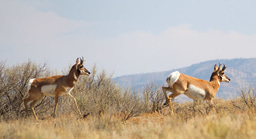Conservation Conversations: Conservation in the UK

🌿 Conservation Conversations: Insights from David on Wildlife Conservation in the UK 🦅
Let's talk about protecting our environment and making our communities stronger. We're not just talking about animals and plants; it's about making a future where nature and people can both be happy and prosperous.
WildHub Conversation Log
Ussi Abuu (WildHub): Hi David! Welcome to WildHub. It's great to connect with someone from the UK. How are you today?
David (UK): Hello Ussi! Thanks for having me. I'm doing well, excited to be part of this conversation. How about you?
Ussi Abuu (WildHub): I'm doing great, thanks! So, what brings you to WildHub? Are you involved in conservation or interested in wildlife?
David (UK): Absolutely, I'm passionate about wildlife conservation. I'm part of an International NGO based in the UK, dedicated to protecting endangered species. 🌍 I'm keen to learn and share experiences with others in the field.
Ussi Abuu (WildHub): What role do you see conservation efforts playing in promoting sustainable development in the United Kingdom?
David (UK): The UK is one of the most nature-depleted countries globally. To maintain crucial ecosystem services, we must not only halt the destruction but also actively work to regain what's lost. It's essential that our communities, especially those marginalized, have access to natural spaces for social and mental health benefits. Moreover, we need to ensure they don't bear a disproportionate burden from environmental hazards like pollution and extreme weather events.

Communities in the UK. Photo: David Jay
Ussi Abuu (WildHub): That sounds like crucial work. Community engagement is key to successful conservation efforts. In your opinion, what are the key environmental challenges facing the United Kingdom, and how can conservation initiatives address these challenges?
David (UK): The primary challenge is preserving existing biodiversity. Robust policies to prevent the loss of natural habitats are crucial, and the Biodiversity Net Gain requirements in our planning process are a positive step. Re-wilding is a promising growth area needing continued financial support. Hunting of game birds, particularly on moorlands, poses challenges that need attention, impacting both grouse populations and wider ecosystems.
Ussi Abuu (WildHub): How can sustainable conservation projects contribute to improving the living conditions and resilience of communities in United Kingdom?
David (UK): Conservation projects that look after nature in a sustainable way are very important for making life better in the United Kingdom. The UK doesn't have as much nature as it should, so these projects not only stop more damage but also try to bring back what we've lost. This is crucial, especially for communities that might not have a lot of access to green spaces. Having parks and natural places is not just good for the environment but also makes people feel better mentally and socially.
These projects also help in dealing with problems like pollution and extreme weather, making sure that everyone, especially those who might be more affected, doesn't face too many difficulties. So, by taking care of nature in a smart way, these projects are like a friendly helper, making life healthier and happier for everyone.
Ussi Abuu (WildHub): What strategies or approaches do you believe are most effective in balancing conservation efforts with the socio-economic needs of the people in the United Kingdom?
David (UK): I don’t see a major conflict between biodiversity conservation and socio-economic needs in the UK. Financial incentives are necessary for agricultural practices to shift towards nature-friendly approaches. Additionally, a well-regulated system of fishing quotas is crucial to ensure sustainable practices that support fishing-dependent communities.
Ussi Abuu (WildHub): In light of your work experience, could you share some of the most valuable lessons you've learned throughout your career?
David (UK):
Every problem needs its solution. We can learn from other problems, but each problem is different. That's important to remember.
I'm learning a lot here. We're all part of a big team working together for the planet.
Ussi Abuu (WildHub): How did you come across WildHub, and why did you join?
David (UK): I've been aware of WildHub since its inception. The project intrigued me, and I've kept an eye on it. Recently, I rediscovered it through other networks like Conservation Optimism.
Ussi Abuu (WildHub): Is there anything else you would like to share with our WildHub members?
David (UK):
While I have more to learn than to teach, I believe this community is fantastic. We are part of a global team, each contributing in our unique roles across the world.
Ussi Abuu (WildHub): That's a wonderful vision! It's been a pleasure chatting with you, David. Your dedication to conservation is truly inspiring. Let's stay connected and continue sharing our experiences and insights.
David (UK): Absolutely, Ussi. Thank you for this conversation and for the work you do at WildHub. Let's definitely keep in touch. Wildlife conservation is all about collaboration and learning from each other.
In conclusion, the conversation with David highlights the interconnectedness of conservation and community well-being in the UK. By addressing the disappearance of nature and it's impact on both the environment and people's happiness, it becomes clear that conservation projects act as friendly helpers, promoting a healthier and happier life for everyone. David's insights on balancing nature conservation with supporting people through sustainable farming practices and fishing regulations offer practical solutions. As he emphasizes the importance of finding unique solutions for each problem, his experience with WildHub reflects the collaborative spirit of a global team working together for the well-being of our planet.




Please sign in or register for FREE
If you are a registered user on WildHub, please sign in